Our Region
Our Region, Our Grasses, Our Passion
What Grass Do You Have?
Choosing the right care for your lawn starts with knowing what kind of grass you have. In our region, the two most common types of grass are tall fescue and Bermuda grass. Each has unique characteristics that make it stand out. Here are some tips and tricks to help you identify which type of grass you have:
Tall Fescue
- Appearance: Tall fescue has a broader blade with a prominent vein running down the center. The tips of the blades are rounded rather than sharp.
-
Color: This grass type is usually a deep green, even during cooler months, and maintains a lush appearance throughout most of the year.
-
Growth Habit: Tall fescue grows in clumps rather than spreading aggressively. It has a more upright growth pattern.
-
Seasonality: It thrives in cooler seasons and is known as a cool-season grass, remaining green during fall and spring.
-
Texture: The texture of tall fescue is slightly coarse to the touch.
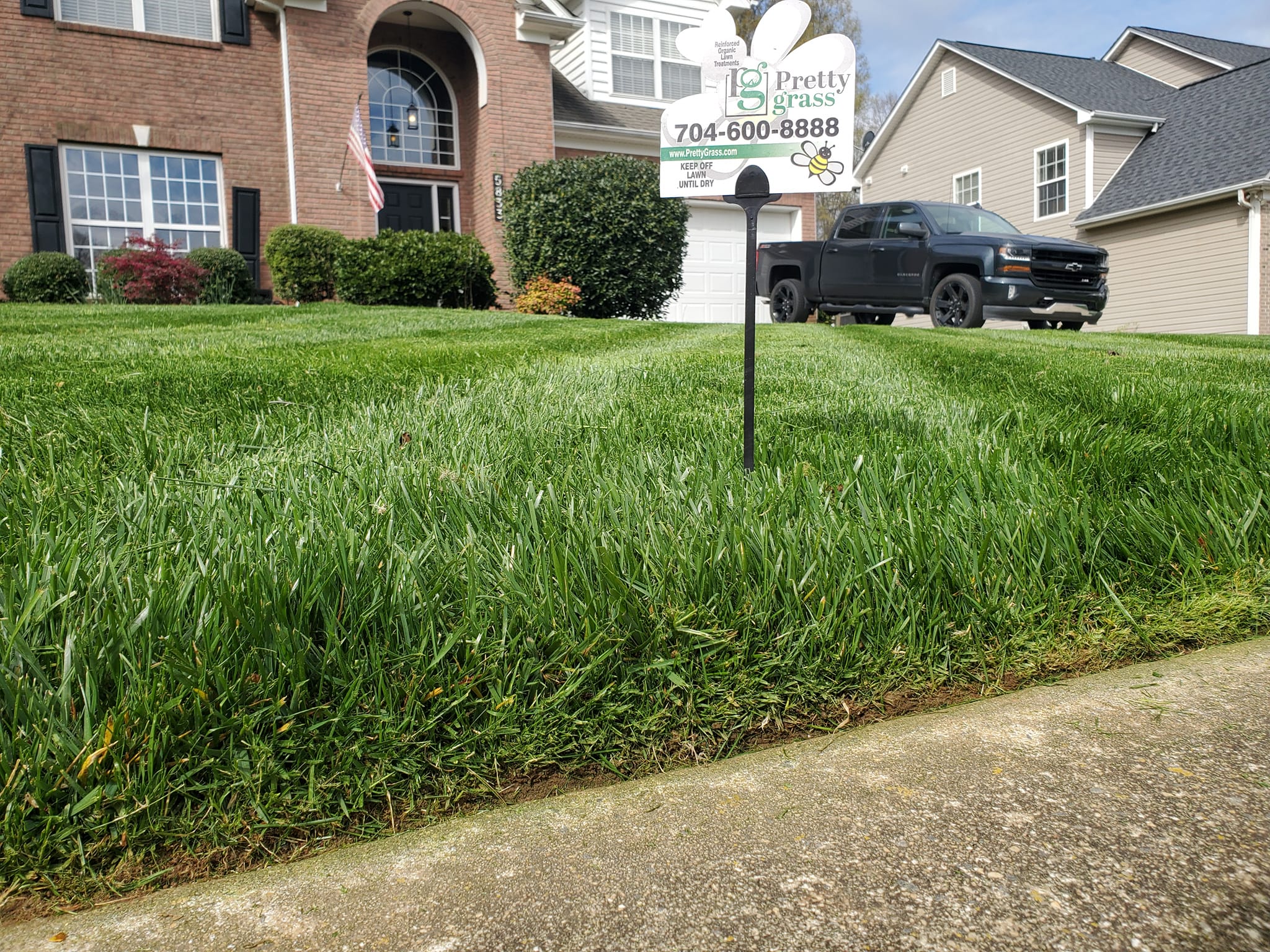
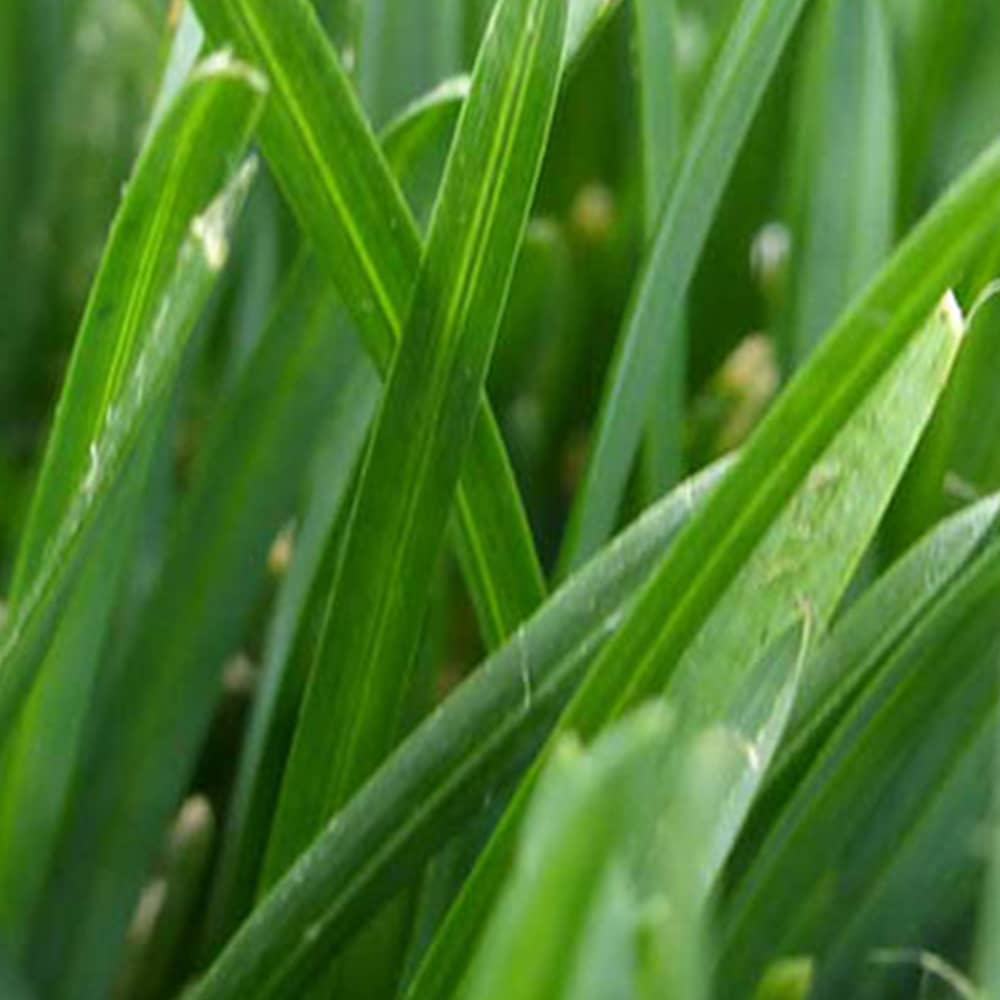
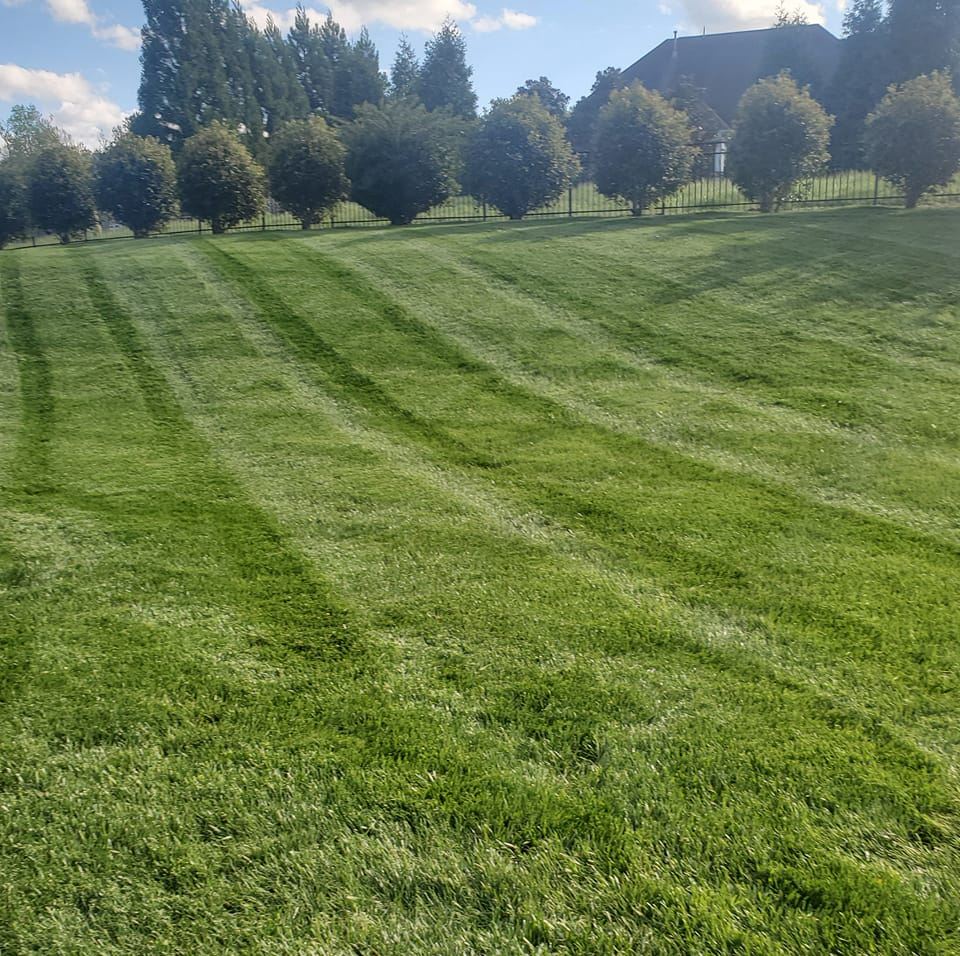
Tall Fescue
- Appearance: Tall fescue has a broader blade with a prominent vein running down the center. The tips of the blades are rounded rather than sharp.
-
Color: This grass type is usually a deep green, even during cooler months, and maintains a lush appearance throughout most of the year.
-
Growth Habit: Tall fescue grows in clumps rather than spreading aggressively. It has a more upright growth pattern.
-
Seasonality: It thrives in cooler seasons and is known as a cool-season grass, remaining green during fall and spring.
-
Texture: The texture of tall fescue is slightly coarse to the touch.
Bermuda Grass
-
Appearance: Bermuda grass has a finer blade and a dense, low-growing habit. The tips of the blades are sharp and pointed.
-
Color: Bermuda grass tends to be a lighter green compared to tall fescue and may turn brown or go dormant in colder months.
-
Growth Habit: It spreads aggressively through stolons (above-ground runners) and rhizomes (below-ground runners), creating a dense mat.
-
Seasonality: Bermuda grass thrives in warm weather and is considered a warm-season grass. It flourishes in the summer months.
-
Texture: The texture is finer and softer compared to tall fescue.
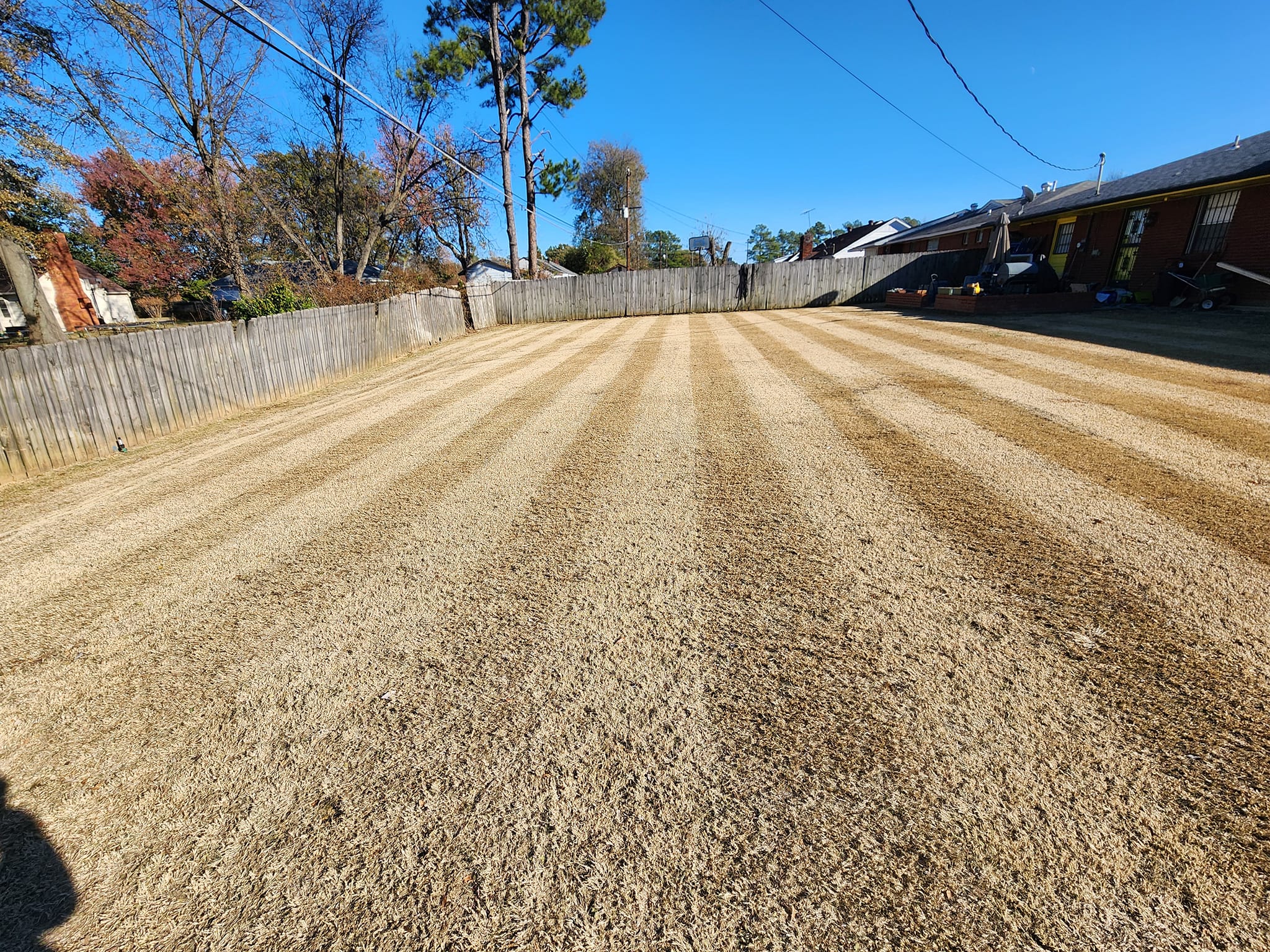
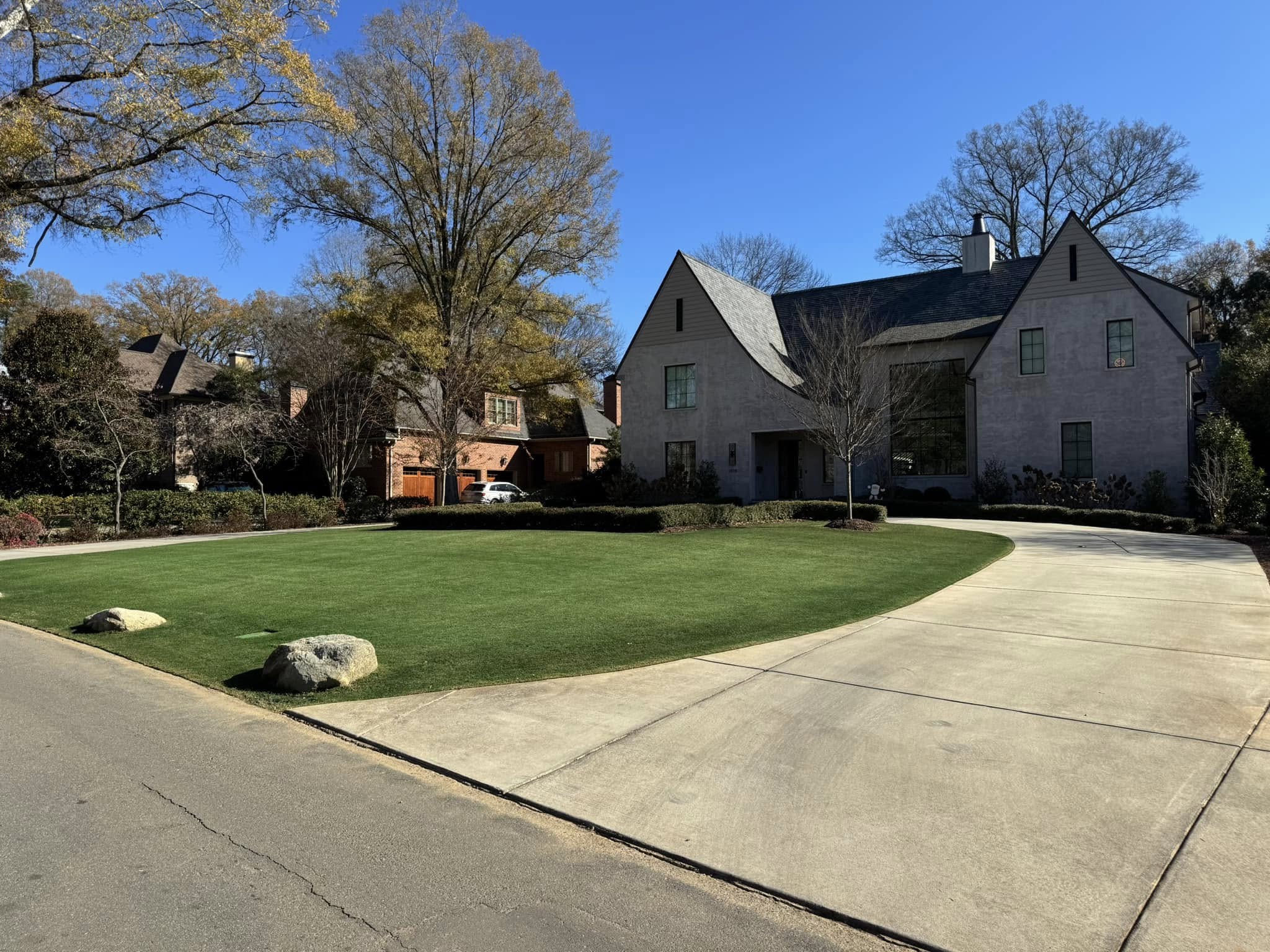
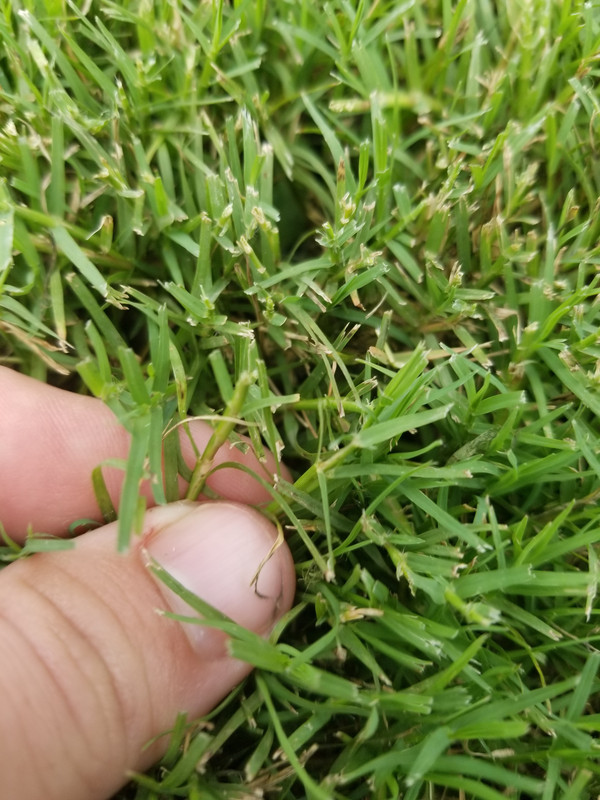
Tips for Identifying Your Grass Type
- Look at the Blade Shape: The width and tip shape can quickly differentiate between the two types.
- Check for Growth Patterns: Examine whether the grass grows in clumps or spreads out with runners.
- Feel the Texture: Rub the blades between your fingers to assess whether the grass feels coarse (tall fescue) or soft (Bermuda).
- Observe Seasonal Changes: Note whether your lawn stays green year-round (tall fescue) or goes dormant in winter (Bermuda).
- Inspect the Density: Bermuda grass typically forms a dense, carpet-like layer, while tall fescue has a less compact appearance.
By identifying the type of grass in your lawn, you can ensure you’re using the best practices for mowing, watering, and fertilizing to keep your lawn looking its best. If you’re still unsure, our team is here to help—reach out to us for expert advice!
Grass in Charlotte, NC: Understanding Tall Fescue and Bermuda Grass
Charlotte, NC, is located in the transition zone—a region where neither warm-season nor cool-season grasses are perfectly suited to thrive year-round. This unique climate brings challenges and opportunities for homeowners deciding between tall fescue and Bermuda grass. Here, we’ll explore how these grasses behave in our region, along with their benefits and drawbacks, so you can make an informed choice for your lawn.
Tall Fescue in Charlotte’s Climate
-
Tendencies: Tall fescue is a cool-season grass that performs best during spring and fall. However, Charlotte’s hot, humid summers can stress tall fescue, necessitating regular watering and care to maintain its health.
-
Benefits:
-
Stays green during cooler months, providing year-round visual appeal.
-
Can tolerate partial shade, making it ideal for lawns with trees or structures casting shadows.
-
Grows in clumps, which makes it less invasive to nearby flower beds or gardens.
-
-
Drawbacks:
-
Struggles with Charlotte’s summer heat and humidity, often requiring supplemental irrigation.
-
Susceptible to fungal diseases such as brown patch, especially in damp conditions.
-
Needs annual overseeding in fall to maintain a dense, healthy appearance.
-
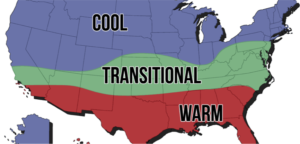 Bermuda Grass in Charlotte’s Climate
Bermuda Grass in Charlotte’s Climate
-
Tendencies: As a warm-season grass, Bermuda thrives in Charlotte’s hot summers. It can withstand high traffic and drought conditions but becomes dormant and brown in winter.
-
Benefits:
-
Thrives in full sun and high temperatures, making it an excellent choice for Charlotte’s summer months.
-
Highly resilient to wear and tear, perfect for active households or areas with heavy foot traffic.
-
Aggressive spreading ability helps it recover quickly from damage and fill in bare spots.
-
-
Drawbacks:
-
Goes dormant and loses its color during winter, creating a less attractive lawn for part of the year.
-
Struggles in shaded areas, requiring direct sunlight for optimal growth.
-
Aggressive growth can make it invasive, often spreading into flower beds and neighboring properties.
-
The Transition Zone Reality
In the transition zone, there’s no perfect grass choice. Both tall fescue and Bermuda grass come with unique challenges that require regular maintenance to keep your lawn looking its best. Understanding their tendencies in Charlotte’s climate can help you tailor your care strategy:
-
For Tall Fescue: Be prepared to provide extra water during summer and overseed in fall to ensure consistent density and health.
-
For Bermuda Grass: Accept its winter dormancy and manage its aggressive spreading through edging and proper lawn maintenance.
By choosing the grass type that best aligns with your lawn’s conditions and your maintenance preferences, you can create a beautiful, thriving outdoor space. Remember, no grass is maintenance-free—but with proper care, either option can flourish in Charlotte’s transition-zone climate.
Want To Know What We Can Do For You?
Ready For PrettyGrass?
